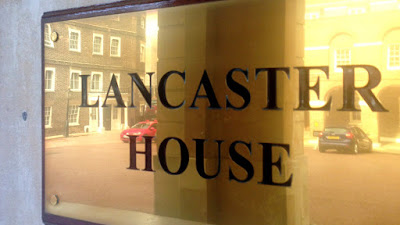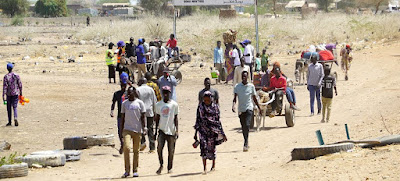From Security Council Report
Dated Wednesday 29 Oct 2025 - excerpt:
Sudan: Briefing and Consultations
Tomorrow morning (30 October), the Security Council is expected to hold an open briefing, followed by closed consultations, on Sudan.
It appears that the meeting had been previously scheduled for early November, in keeping with resolution 2715 of 1 December 2023, which called for the Council to be briefed every 120 days on “UN efforts to support Sudan on its path towards peace and stability”.
However, the UK (the penholder on the file), Denmark, and the “A3 Plus” members (Algeria, Sierra Leone, Somalia, and Guyana) requested that the date of the meeting be moved forward because of the dire situation in El Fasher, the capital of North Darfur state.
Under-Secretary-General for Humanitarian Affairs Tom Fletcher and Assistant Secretary-General for Africa in the Departments of5 Political and Peacebuilding Affairs and Peace Operations (DPPA-DPO) Martha Ama Akyaa Pobee are expected to brief in the open chamber.
Personal Envoy of the Secretary-General for Sudan Ramtane Lamamra is expected to brief members via videoconference (VTC) in the closed consultations, while Fletcher may participate in the closed session as well.
A draft press statement proposed by the UK and the A3 Plus members, which expresses Council members’ concern about the violence in and around El Fasher, is under silence procedure until tomorrow morning.
Earlier this month, fighting escalated in El Fasher as the Rapid Support Forces (RSF) launched an assault on the 6th Infantry Division headquarters of the Sudanese Armed Forces (SAF), reportedly capturing it on 26 October and forcing SAF and allied troops to retreat to the western neighbourhoods of the city.
The RSF subsequently seized large parts of El Fasher, effectively ending an 18-month-long siege and taking control of the SAF’s last stronghold in the Darfur region.
The civilian population has borne the brunt of the siege, with hospitals, schools, religious sites, and camps for internally displaced persons (IDPs) targeted indiscriminately and starvation reported in the city.
In a 27 October press release, the Office of the UN High Commissioner for Human Rights (OHCHR) described reports of summary executions of civilians attempting to flee El Fasher, with indications of ethnic motivations for killings. It further cited reports of the killing of persons no longer participating in hostilities, including unarmed men accused of being SAF fighters.
In a 24 October statement after a visit to Sudan, UNICEF Deputy Executive Director Ted Chaiban said that 130,000 children in El Fasher are “trapped, cut off from food, water, and healthcare”, adding that women and children who have been able to flee the siege have faced harassment and attacks.
Chaiban also described conditions in other parts of the country—where children continue to face malnutrition, violence, and exposure to diseases such as cholera—stressing that “Sudan is the world’s largest humanitarian crisis”.
Tomorrow, the briefers and Council members are expected to underscore the gravity of the crisis in Sudan, echoing concerns expressed in recent days by the African Union (AU), the European Union (EU), and other key international actors.
The briefers and Council members are likely to condemn the effects of the fighting in El Fasher on the civilian population, including reports of summary executions.
They are also expected to urge the parties to allow the unhindered delivery of humanitarian aid into El Fasher, as well as other parts of Sudan affected by the conflict, and call on them to adhere to their responsibilities under international law, including with respect to the protection of civilians.
Concerns may also be raised tomorrow about the 21 October threat by RSF leader General Mohamed Hamdan Dagalo to target planes or drones from neighbouring countries that the RSF believes are supporting the SAF.
While Dagalo did not specify which states he was referencing, the RSF and its supporters have accused several countries in the region of backing the SAF.
This statement was made on the same day that the RSF reportedly launched drone attacks in Sudan’s capital, Khartoum, including on areas near the international airport, just a day before domestic flights were scheduled to resume for the first time since the outbreak of fighting in April 2023. These attacks reportedly continued over the following days.
Full story:
https://www.securitycouncilreport.org/whatsinblue/2025/10/sudan-briefing-and-consultations-12.php
Update:
WATCH recording of the full meeting, here:
https://news.un.org/en/story/2025/10/1166222
- at the bottom of the screen slide bar to 17:50 for start of meeting;
- click on settings wheel & audio to select preferred language & speed.
End




